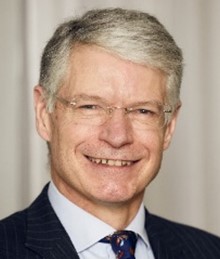Course details
- Duration: 1.5 days
- Fees:
Early bird fee: £1200 (until 5 August)
Standard fee: £1500 (after 5 August)
- Venue: Imperial College London: 170 Queen's Gate, South Kensington, London SW7 5HF
- Schedule
- Contact us
 Professor Washington Yotto Ochieng, CBE, EBS, FREng, is the Head of the Department of Civil and Environmental Engineering, and Chair in Positioning and Navigation Systems. He is also the Interim Director of the Institute for Security Science and Technology (ISST) and Member of the Steering Committee of Imperial Space Lab. He is a renowned expert in infrastructure resilience, trans-modal mobility, positioning, navigation and timing (PNT) systems and geomatics. Ochieng is a Chartered Engineer, Fellow of the Royal academy of Engineering, and Fellow of the Institution of Civil Engineers, Royal Institute of Navigation (RIN), Institution of Highways and Transportation and the Institution of Civil Engineering Surveyors. He holds multiple high-profile positions, including Vice President of RIN, Board Member of the Science Museum Group, Chair of the Science Museum Advisory Board, and Member of advisory councils at the National Physical Laboratory (NPL), the Department of Transport (DfT) and the Foreign, Commonwealth and Development Office (FCDO).
Professor Washington Yotto Ochieng, CBE, EBS, FREng, is the Head of the Department of Civil and Environmental Engineering, and Chair in Positioning and Navigation Systems. He is also the Interim Director of the Institute for Security Science and Technology (ISST) and Member of the Steering Committee of Imperial Space Lab. He is a renowned expert in infrastructure resilience, trans-modal mobility, positioning, navigation and timing (PNT) systems and geomatics. Ochieng is a Chartered Engineer, Fellow of the Royal academy of Engineering, and Fellow of the Institution of Civil Engineers, Royal Institute of Navigation (RIN), Institution of Highways and Transportation and the Institution of Civil Engineering Surveyors. He holds multiple high-profile positions, including Vice President of RIN, Board Member of the Science Museum Group, Chair of the Science Museum Advisory Board, and Member of advisory councils at the National Physical Laboratory (NPL), the Department of Transport (DfT) and the Foreign, Commonwealth and Development Office (FCDO).
 Seema Alim, PhD, PE, is an alumnus of the Imperial College, London with 35+ years of major, multi-sector infrastructure programmes in the US, Canada, Asia and Africa. She is a Programme Director and Vice President at Jacobs and formerly was a Vice President (Global Programmes) with CH2MHILL, Vice President (Major Programmes) at Louis Berger (WSP), Infrastructure Advisor at USAID and a Fellow of the Connecticut Academy of Science and Engineering and has served on the Expert Advisory Board of i-BUILD, UK. Early in her career Dr Alim was appointed by Prime Minister Benazir Bhutto of Pakistan to chair the Prime Minister’s Special Programme Office to implement major infrastructure programmes; she also served as the Chairman of the National Mass Transit Authority of Pakistan.
Seema Alim, PhD, PE, is an alumnus of the Imperial College, London with 35+ years of major, multi-sector infrastructure programmes in the US, Canada, Asia and Africa. She is a Programme Director and Vice President at Jacobs and formerly was a Vice President (Global Programmes) with CH2MHILL, Vice President (Major Programmes) at Louis Berger (WSP), Infrastructure Advisor at USAID and a Fellow of the Connecticut Academy of Science and Engineering and has served on the Expert Advisory Board of i-BUILD, UK. Early in her career Dr Alim was appointed by Prime Minister Benazir Bhutto of Pakistan to chair the Prime Minister’s Special Programme Office to implement major infrastructure programmes; she also served as the Chairman of the National Mass Transit Authority of Pakistan.
 Richard Ploszek, joined Infrastructure UK (IUK), one of the precursors to Infrastructure and Projects Authority (IPA) in 2013 and the IPA Delivery Team in 2016 providing commercial and engineering support on housing and regeneration projects. He has been involved in the setting up of the Ebbsfleet Development Corporation and has provided significant support in the development of key infrastructure investment proposals to radically accelerate delivery of this key Garden Town. He is an engineer with an extensive policy experience, bringing an understanding of real-world project issues into the development of policy led solutions, for example, the development, launch and delivery of the £5.5Bn Housing Infrastructure Fund. Previously, he led the development of thinking on planning and management of infrastructure interdependencies, leading academic research that led to improvements in the way that the risks and opportunities of interdependencies can be captured in the development of major infrastructure projects. This work has led to new Green Book guidance on Valuing Infrastructure Spend and contributed to wider work on understanding infrastructure resilience at a system of systems level. He remains involved in cutting edge academic research on infrastructure and infrastructure sensing sitting on various research steering groups such as the Centre for Smart Infrastructure in Cambridge (CSIC), iBUILD, ITRC and is involved in the development of UKCRIC. Prior to joining the Civil Service, Richard was the Senior Policy Advisor at the Royal Academy of Engineering and has considerable experience in utility financing and regulation.
Richard Ploszek, joined Infrastructure UK (IUK), one of the precursors to Infrastructure and Projects Authority (IPA) in 2013 and the IPA Delivery Team in 2016 providing commercial and engineering support on housing and regeneration projects. He has been involved in the setting up of the Ebbsfleet Development Corporation and has provided significant support in the development of key infrastructure investment proposals to radically accelerate delivery of this key Garden Town. He is an engineer with an extensive policy experience, bringing an understanding of real-world project issues into the development of policy led solutions, for example, the development, launch and delivery of the £5.5Bn Housing Infrastructure Fund. Previously, he led the development of thinking on planning and management of infrastructure interdependencies, leading academic research that led to improvements in the way that the risks and opportunities of interdependencies can be captured in the development of major infrastructure projects. This work has led to new Green Book guidance on Valuing Infrastructure Spend and contributed to wider work on understanding infrastructure resilience at a system of systems level. He remains involved in cutting edge academic research on infrastructure and infrastructure sensing sitting on various research steering groups such as the Centre for Smart Infrastructure in Cambridge (CSIC), iBUILD, ITRC and is involved in the development of UKCRIC. Prior to joining the Civil Service, Richard was the Senior Policy Advisor at the Royal Academy of Engineering and has considerable experience in utility financing and regulation.
 Dervilla Mitchell, DBE, FREng, is Deputy Chair of Arup Group and a Civil Engineer with a background of design in the built environment. Her particular expertise is leading major programmes, and these have included Terminal 5, Heathrow, Terminal 2, Dublin and Abu Dhabi Midfield Terminal. She chairs the National Engineering Policy Centre’s decarbonising UK working group bringing together representatives of engineering organisations to overseen a range of publications and engagement with Government, supporting the ambitions of reaching net zero. She is also a member of the Rapid Electricity System Decarbonisation group which is being led by the Royal Academy of Engineering. Dervilla is a member of the Civil Engineering Department Industry Advisory Board at Imperial and enjoys engaging with the students through her annual lecture.
Dervilla Mitchell, DBE, FREng, is Deputy Chair of Arup Group and a Civil Engineer with a background of design in the built environment. Her particular expertise is leading major programmes, and these have included Terminal 5, Heathrow, Terminal 2, Dublin and Abu Dhabi Midfield Terminal. She chairs the National Engineering Policy Centre’s decarbonising UK working group bringing together representatives of engineering organisations to overseen a range of publications and engagement with Government, supporting the ambitions of reaching net zero. She is also a member of the Rapid Electricity System Decarbonisation group which is being led by the Royal Academy of Engineering. Dervilla is a member of the Civil Engineering Department Industry Advisory Board at Imperial and enjoys engaging with the students through her annual lecture.
 Mark Wild, OBE, FREng, has more than 35 years of experience leading complex and critical infrastructure. An Engineer with Hons Bachelor’s Degree in Electrical and Electronic Engineering and Masters in Business Administration. He started his career in the electricity sector, but the majority of his experience has been in transportation. He has had a long career in operating and building major transportation infrastructure. Mark is the former Managing Director of Westinghouse Signals and was the CEO of Public Transport Victoria. Mark is the former Managing Director of London Underground and the former CEO of Crossrail, Europe’s largest infrastructure programme. Mark took up the role of CEO for SGN, one of the UK’s largest gas distribution networks in August last year and has recently been named to lead HS2.
Mark Wild, OBE, FREng, has more than 35 years of experience leading complex and critical infrastructure. An Engineer with Hons Bachelor’s Degree in Electrical and Electronic Engineering and Masters in Business Administration. He started his career in the electricity sector, but the majority of his experience has been in transportation. He has had a long career in operating and building major transportation infrastructure. Mark is the former Managing Director of Westinghouse Signals and was the CEO of Public Transport Victoria. Mark is the former Managing Director of London Underground and the former CEO of Crossrail, Europe’s largest infrastructure programme. Mark took up the role of CEO for SGN, one of the UK’s largest gas distribution networks in August last year and has recently been named to lead HS2.
 John Pelton, MBE, is currently the Enterprise Programme Director at Jacob. Previously with Enterprise Programme Director at Costain. Prior to that Programme Partner Director with Jacobs for East West Rail following that seconded to the Lower Thames Crossing programme as the Sponsorship Director following 2 years as a Director on the Palace of Westminster Restoration and Renewal Programme and in Parliament. He led Highways England’s Major Projects transformation programme, Crossrail’s Programme Partner JV (including delivering Crossrail’s innovation programme) and HS2’s Efficiency Challenge Programme. First career leading complex programmes with the British military on operations around the world and in procurement. Honorary Professor of Project and Construction Management at UCL.
John Pelton, MBE, is currently the Enterprise Programme Director at Jacob. Previously with Enterprise Programme Director at Costain. Prior to that Programme Partner Director with Jacobs for East West Rail following that seconded to the Lower Thames Crossing programme as the Sponsorship Director following 2 years as a Director on the Palace of Westminster Restoration and Renewal Programme and in Parliament. He led Highways England’s Major Projects transformation programme, Crossrail’s Programme Partner JV (including delivering Crossrail’s innovation programme) and HS2’s Efficiency Challenge Programme. First career leading complex programmes with the British military on operations around the world and in procurement. Honorary Professor of Project and Construction Management at UCL.
 Russell Pilgrim, FICE, FIoD, MIET, MBA, B.Sc (Hons), is an Alumni of Imperial College London, a Fellow of the Institution of Civil Engineers and the Institute of Directors. He currently leads Jacobs European region major programme and delivery management and the East West Rail programme estimated at c.£7bn capital expenditure. Russell has extensive experience managing Jacobs delivery of high profile, multi-billion-dollar programs, including Crossrail the Elizabeth line and East West Rail. His expertise covers major and critical developments of National Significant Infrastructure Projects (NSIP) through three critical phases of ‘Development’, ‘Delivery’ and ‘End-User’ on multiple industries including urban development, transportation, systems and telecommunications of client organisations and professional services. Russell and his team have been recognised for successful programme delivery through winning numerous prestigious awards.
Russell Pilgrim, FICE, FIoD, MIET, MBA, B.Sc (Hons), is an Alumni of Imperial College London, a Fellow of the Institution of Civil Engineers and the Institute of Directors. He currently leads Jacobs European region major programme and delivery management and the East West Rail programme estimated at c.£7bn capital expenditure. Russell has extensive experience managing Jacobs delivery of high profile, multi-billion-dollar programs, including Crossrail the Elizabeth line and East West Rail. His expertise covers major and critical developments of National Significant Infrastructure Projects (NSIP) through three critical phases of ‘Development’, ‘Delivery’ and ‘End-User’ on multiple industries including urban development, transportation, systems and telecommunications of client organisations and professional services. Russell and his team have been recognised for successful programme delivery through winning numerous prestigious awards.
 Professor Gilles Chemla, is a Professor of Finance at Imperial College Business School and Co-director of Imperial's Centre for Financial Technology. He is also a research fellow at Centre National de la Recherche Scientifique, a research fellow at Centre for Economic Policy Research (CEPR), a senior research fellow and chair of the Financial Economics Network at the Rimini Centre for Economic Analysis (RCEA), and a member of the American Finance Association, American Economic Association, Western Finance Association, and European Finance Association. He currently serves as an Associate Editor at the Journal of Empirical Finance. Gilles holds a PhD in economics from the London School of Economics, an MSc in economics from the Paris School of Economics, and he is a graduate engineer from Ponts ParisTech. Prior to joining Imperial, Gilles was an Assistant Professor of Finance at the Sauder School of Business, University of British Columbia. He has also worked in corporate finance at BNP Paribas, as an independent consultant for a variety of corporate, financial, and governmental institutions and professional and international organisations, and he has served on a wide range of boards.
Professor Gilles Chemla, is a Professor of Finance at Imperial College Business School and Co-director of Imperial's Centre for Financial Technology. He is also a research fellow at Centre National de la Recherche Scientifique, a research fellow at Centre for Economic Policy Research (CEPR), a senior research fellow and chair of the Financial Economics Network at the Rimini Centre for Economic Analysis (RCEA), and a member of the American Finance Association, American Economic Association, Western Finance Association, and European Finance Association. He currently serves as an Associate Editor at the Journal of Empirical Finance. Gilles holds a PhD in economics from the London School of Economics, an MSc in economics from the Paris School of Economics, and he is a graduate engineer from Ponts ParisTech. Prior to joining Imperial, Gilles was an Assistant Professor of Finance at the Sauder School of Business, University of British Columbia. He has also worked in corporate finance at BNP Paribas, as an independent consultant for a variety of corporate, financial, and governmental institutions and professional and international organisations, and he has served on a wide range of boards.
 Dr Mireille Elhajj, FRIN, MCIHT is Founder and CEO of Astraterra. Her expertise is in forming strategic partnerships, managing projects, and designing optimal solutions across space, transport, smart cities, infrastructure, and mobility systems and services. She is Honorary Senior Lecturer at Imperial College London, where she previously held various positions, including Directorship of the Integrated Space Science Engineering Program, Advanced Research Fellowship in the Department of Civil and Environmental Engineering (CEE), and Security Science Fellowship at the Institute for Security Science and Technology (ISST). She was also an External Lecturer in PNT, and security of critical national infrastructure. She has published scientific papers in PNT signal interference mitigation, and novel integrity (safety) monitoring methods. She has a PhD and MSc in Transport Engineering from Imperial, MSc in Financial Analysis and Fund Management from Exeter University, and a BSc in Business Marketing from the Lebanese American University. She is a Fellow of the RIN, and Member of the CEE Industrial Advisory Board, and the Radio Technical Commission for Maritime Services.
Dr Mireille Elhajj, FRIN, MCIHT is Founder and CEO of Astraterra. Her expertise is in forming strategic partnerships, managing projects, and designing optimal solutions across space, transport, smart cities, infrastructure, and mobility systems and services. She is Honorary Senior Lecturer at Imperial College London, where she previously held various positions, including Directorship of the Integrated Space Science Engineering Program, Advanced Research Fellowship in the Department of Civil and Environmental Engineering (CEE), and Security Science Fellowship at the Institute for Security Science and Technology (ISST). She was also an External Lecturer in PNT, and security of critical national infrastructure. She has published scientific papers in PNT signal interference mitigation, and novel integrity (safety) monitoring methods. She has a PhD and MSc in Transport Engineering from Imperial, MSc in Financial Analysis and Fund Management from Exeter University, and a BSc in Business Marketing from the Lebanese American University. She is a Fellow of the RIN, and Member of the CEE Industrial Advisory Board, and the Radio Technical Commission for Maritime Services.
 Mark Enzer, OBE, FREng, Mark Enzer OBE FREng, is a keen champion of outcomes-focused systems-thinking, collaborative delivery models, digitalisation, connected digital twins and the circular economy in the built environment. He is the Royal Academy of Engineering Visiting Professor in the digitalisation of the built environment at the University of Cambridge and a Visiting Professor at Imperial College London. As Strategic Advisor at Mott MacDonald, Mark provides advice to key clients on digitalisation and broader industry transformation. Previously, Mark was the CTO of Mott MacDonald and the Director of the Centre for Digital Built Britain, where he was the Head of the National Digital Twin programme. He was the lead author of the Infrastructure Carbon Review, published by HM Treasury.
Mark Enzer, OBE, FREng, Mark Enzer OBE FREng, is a keen champion of outcomes-focused systems-thinking, collaborative delivery models, digitalisation, connected digital twins and the circular economy in the built environment. He is the Royal Academy of Engineering Visiting Professor in the digitalisation of the built environment at the University of Cambridge and a Visiting Professor at Imperial College London. As Strategic Advisor at Mott MacDonald, Mark provides advice to key clients on digitalisation and broader industry transformation. Previously, Mark was the CTO of Mott MacDonald and the Director of the Centre for Digital Built Britain, where he was the Head of the National Digital Twin programme. He was the lead author of the Infrastructure Carbon Review, published by HM Treasury.
ROUND TABLE PARTICIPANTS
 Fergus Harradence, is the Deputy Director in the Department for Business & Trade with responsibility for the built environment sectors, including construction, water, airports and logistics. Since joining the Civil Service In 2000, he has worked in a number of Departments in a range of economic policy roles, including trade policy, export promotion, innovation and corporate tax. His current responsibilities include DBT's policies to help improve the productivity and environmental performance of the built environment sectors, including through encouraging the adoption of new technologies and construction techniques, supporting exports and inward investment, decarbonising buildings and construction operations, systems digitisation and improving the efficiency of the construction supply chain. He is a member of the Advisory Boards of the Department for Civil and Environmental Engineering at Imperial College, and the Centre for Smart Infrastructure and Construction at Cambridge University.
Fergus Harradence, is the Deputy Director in the Department for Business & Trade with responsibility for the built environment sectors, including construction, water, airports and logistics. Since joining the Civil Service In 2000, he has worked in a number of Departments in a range of economic policy roles, including trade policy, export promotion, innovation and corporate tax. His current responsibilities include DBT's policies to help improve the productivity and environmental performance of the built environment sectors, including through encouraging the adoption of new technologies and construction techniques, supporting exports and inward investment, decarbonising buildings and construction operations, systems digitisation and improving the efficiency of the construction supply chain. He is a member of the Advisory Boards of the Department for Civil and Environmental Engineering at Imperial College, and the Centre for Smart Infrastructure and Construction at Cambridge University.

Professor Jeni Giambona, is Professorial Fellow and Director of Knowledge Exchange and Enterprise at Southampton Business School, leading on developing impactful strategic collaborations and co-creation with external organisations and the public. Her expertise is in the development of systems thinking-based co-creation, knowledge exchange, research and engagement strategies. Prior to Southampton, Jeni worked at Imperial as Programmes Director of the Systems Engineering Leadership Development, DfMA and IDD Leadership Development courses. Jeni’s expertise in systems thinking aims to convene stakeholders to co-create a shared understanding a systems approach to infrastructure including how it can help with decarbonising infrastructure. Jeni contributed to the development of the NSF-funded Infrastructure Architecture Framework for infrastructure management in the digital age. At Southampton, she has been instrumental in founding the Centre for Resilient Socio-Technical Systems, of which she is co-Director. Jeni has been part of the UK CO2nstructZero working group, is Southampton’s main rep to the Major Projects Association and is a member of the DEFRA Systems Community of Practice. She has collaborated widely with industry on systems approaches to infrastructure design, delivery and management.
 Lord Toby Harris, is chair of the National Preparedness Commission, influential in the development of the UK Government Resilience Framework and has established a reputation as the leading body promoting better preparedness for a major crisis or incident. He is also Visiting Professor of Resilience at Cranfield University and is President of the Institute of Strategic Risk Management. In addition, he chairs two regulatory bodies (the General Dental Council, which regulates dental professionals; and the Fundraising Regulator, which oversees charitable fundraising). Lord Toby Harris was made a Life Peer in June 1998 and has been Chair of the Labour Peers since 2012. He stood down from Parliament’s Joint Committee on National Security at the beginning of 2021, having been a member for most of the previous decade. He has also been at various times a member of the House of Lords’ Select Committees on Life Beyond COVID, on Democracy and Digital Technologies, on Personal Internet Security, and on the Olympic and Paralympic Legacy (which he chaired).
Lord Toby Harris, is chair of the National Preparedness Commission, influential in the development of the UK Government Resilience Framework and has established a reputation as the leading body promoting better preparedness for a major crisis or incident. He is also Visiting Professor of Resilience at Cranfield University and is President of the Institute of Strategic Risk Management. In addition, he chairs two regulatory bodies (the General Dental Council, which regulates dental professionals; and the Fundraising Regulator, which oversees charitable fundraising). Lord Toby Harris was made a Life Peer in June 1998 and has been Chair of the Labour Peers since 2012. He stood down from Parliament’s Joint Committee on National Security at the beginning of 2021, having been a member for most of the previous decade. He has also been at various times a member of the House of Lords’ Select Committees on Life Beyond COVID, on Democracy and Digital Technologies, on Personal Internet Security, and on the Olympic and Paralympic Legacy (which he chaired).
In 2016 and in 2021, he conducted Independent Reviews for the Mayor of London on London’s Preparedness to Respond to a Terrorist Attack. His Independent Review on the Deaths of Young People in Prison Custody (“The Harris Review: Changing Prisons, Saving Lives”) was published by the Ministry of Justice in July 2015. He is a former Council Leader (1987-1999), led the Labour Group on the London Assembly for four years (2000-2004), and was the founding Chair of the Association of London Government (now London Councils)(1995-2000). He was the first Chair of the Metropolitan Police Authority (2000-2004) and then on behalf of successive Home Secretaries oversaw police work on counter-terrorism and security (2004-2012). In addition, he was the Chair of National Trading Standards (responsible for delivering national and cross-boundary consumer protection enforcement activity) from 2013 to 2021. He also chaired the Independent Advisory Group on Ethics for the National Crime Agency (2017-2024) and the Independent Advisory Panel on Deaths in Custody (2009-2015). He was a member of the Committee of the Regions of the European Union (1994-2002). Professionally, he was Director of the Association of Community Health Councils for England and Wales (then the statutory body representing the interests of patients in the NHS) (1987-1998); and Deputy Director of the Electricity Consumers’ Council (1979-1986). Previously, he was in the Economics Division of the Bank of England (1975-1979).
Adam L ocke, MA MSc MA CEng FICE, is a Project Director at Laing O’Rourke leading on the development and delivery of energy transition infrastructure, including wind and nuclear small modular reactors (SMRs), to address both energy security and Net Zero challenges. Adam has extensive experience in leading technology and innovation collaborations with government, industry, and academia. He is focussed on improving delivery certainty, productivity, and sustainability using Modern Methods of Construction (MMC) including design for manufacture and assembly (DfMA), digital and advanced manufacturing technologies. Adam is a Chartered Engineer and Fellow of the Institution of Civil Engineers, with degrees in Engineering Science from the University of Cambridge; Environmental Engineering from Imperial College London and an MBA from INSEAD.
ocke, MA MSc MA CEng FICE, is a Project Director at Laing O’Rourke leading on the development and delivery of energy transition infrastructure, including wind and nuclear small modular reactors (SMRs), to address both energy security and Net Zero challenges. Adam has extensive experience in leading technology and innovation collaborations with government, industry, and academia. He is focussed on improving delivery certainty, productivity, and sustainability using Modern Methods of Construction (MMC) including design for manufacture and assembly (DfMA), digital and advanced manufacturing technologies. Adam is a Chartered Engineer and Fellow of the Institution of Civil Engineers, with degrees in Engineering Science from the University of Cambridge; Environmental Engineering from Imperial College London and an MBA from INSEAD.